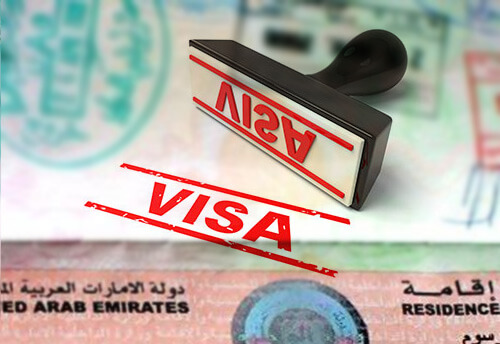This article was updated on June 21st, 2023
- Services
- [email protected]
- Dubai: +971 4 878 6240 Riyadh: +966 56 865 2329

Top 5 Reasons Why You Should Setup An IFZA Free Zone Company
July 13, 2020
BUSINESSES HAVE OPTIONS TO BE IN COMPLIANCE WITH ESR LAW AS FEATURED ON GULF NEWS – July 10, 2020
August 6, 2020
UAE RESIDENCY VISA UPDATES: AVOID OVERSTAY VISA FINES & VISA CANCELATION
This article has been researched and written by Michelle Camacho and the team at Creation Business Consultants and has not used AI in generating this article.
The UAE residence visa is an essential document that gives people the legal permission to live in the United Arab Emirates (UAE) for a lengthy period. A crucial first step for expats and foreign citizens who want to live and work in the UAE is obtaining a UAE residency visa. In addition to giving legal permission for a person to reside, this document also gives them access to numerous social and economic advantages within the nation.
The UAE Immigration authorities control the UAE residency visa, which is subject to a few conditions, including sponsorship by a UAE employer, a UAE family member, or through property ownership. The types of visas available for travelling to the UAE or becoming a UAE resident include:
- Tourist visa
- Visit visa
- Transit visa
- Employment visa
- Residence visa
- Student visa
- Golden visa
- Green visa
- Remote work visa
- Property visa
- Retirement visa
WHAT ARE THE FINES FOR UAE RESIDENCE VISA HOLDERS THAT DO NOT COMPLETE THEIR VISA, OVERSTAY ON THEIR UAE VISA, OR DO NOT CANCEL, TRANSFER OR RENEW THEIR UAE VISA?
After the expiration of the visa holder’s UAE residence visa, there is a grace period of 30 days provided to the visa holder to exit the country, proceed with the residence visa renewal, or complete the change status through a new residence visa sponsor.
During the 30 days grace period, there will not be any fines charged. However, should the visa holder overstay after the grace period, a fine of AED 50 will be charged each day onwards.
EMIRATES ID FINES
Emirates ID card holders have 30 days from the date of Emirates ID card expiry to renew their Emirates ID. After which, late renewal fines of AED 20 per day up to AED 1,000 will apply for non-compliance on renewal or cancelation.
WHEN SHOULD I RENEW MY RESIDENCE VISA AND EMIRATES ID?
Renewing your UAE residence visa and Emirates ID are legal requirements to continue living in the UAE without incurring fines or facing legal consequence for the same. It is highly recommended to renew the residence visa and Emirates ID a month before its expiry date or at least within the 30-day grace period.
To streamline the process of renewing the residence visa and Emirates ID, it is advisable to collaborate with the proficient team at Creation Business Consultants. By doing so, one can ensure that the application is meticulously prepared, minimising the likelihood of any delays.
WHAT HAPPENS TO A UAE RESIDENT WHO HAS BEEN OUT OF THE COUNTRY – UAE FOR 6+ MONTHS?
The general rule is that if an expatriate resident lives or is travelling outside the UAE for more than 180 days or 6 months continuously, the expatriate’s residence visa will be nullified automatically. However, the Federal Authority for Identity, Citizenship, Customs and Port Security (FAICCPS) has recently announced a provision for UAE residents in this situation. According to the announcement, residents who have been outside the country for more than 6 months can apply for a re-entry permit. This permit allows them to return to the UAE and reinstate the validity of their residence permit, provided they can provide a valid reason for their inability to return within the 180-day timeframe.
However, there are some exceptions which allow an expatriate resident to stay outside the UAE for more than 6 months and at the same time maintain the validity of expatriate’s UAE residence visa. The rule does not apply to:
- Foreigner wife of an Emirati citizen.
- Domestic helpers accompanying Emiratis having a scholarship to study abroad.
- Domestic helpers accompanying UAE patients travelling or sent abroad for treatment.
- Expatriate residents and their companions sent abroad for treatment, provided they submit a medical report approved by the medical authorities in the UAE.
- Domestic helpers accompanying members of diplomatic and consular missions representing the UAE abroad and employees of such missions holding residence visas in the UAE.
- Expatriate residents working for the public sector sent by their employers to attend training or specialist courses, or those working in their employers’ offices abroad and their families who are holders of valid residence visas in the UAE.
- Expatriate students studying in universities or institutes abroad (as per Dubai rules).
- Domestic helpers of members of the ruling families working in the homes of the royal family abroad and are holders of valid residence visas in the UAE.
WILL EXPIRED VISAS NEED A UAE MEDICAL TEST?
Yes, a UAE Medical Fitness Test must be done and passed to complete the renewal of an expired UAE residence visa and Emirates ID.
NEXT STEPS
Failure to comply and complete your UAE residency visa and Emirates ID set out with the UAE Cabinet update and new time frames will result in fines and/or UAE residency visa cancellations. Creation Business Consultants will help you throughout the entire process. Our team of labour, Immigration and visa specialist will leverage our experience to help simplify the process while simultaneously providing you with support solutions to run your company in the UAE. Contact our Corporate Structuring Department to learn more about post-incorporation compliances in the UAE, email [email protected], or call UAE at +971 4 878 6240.
Related posts




